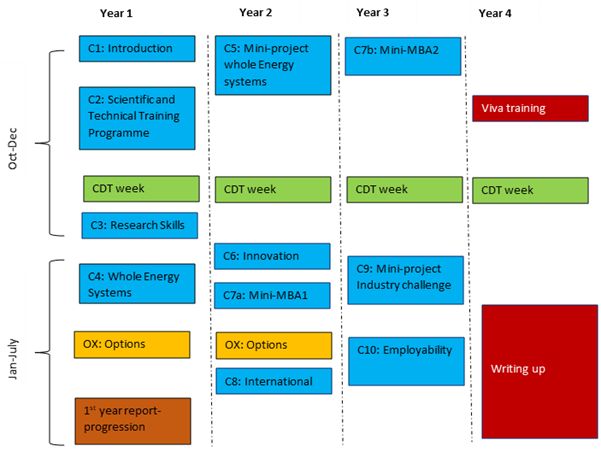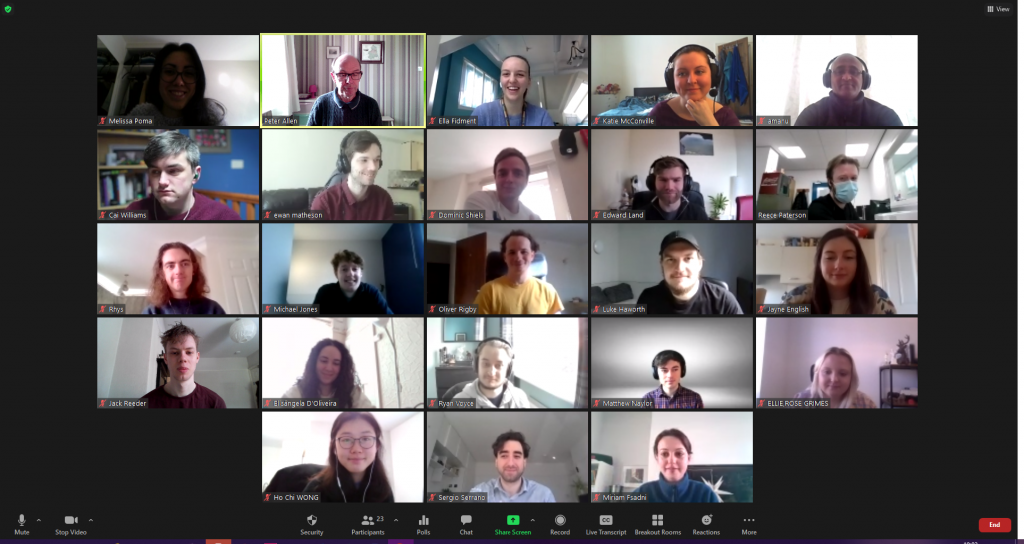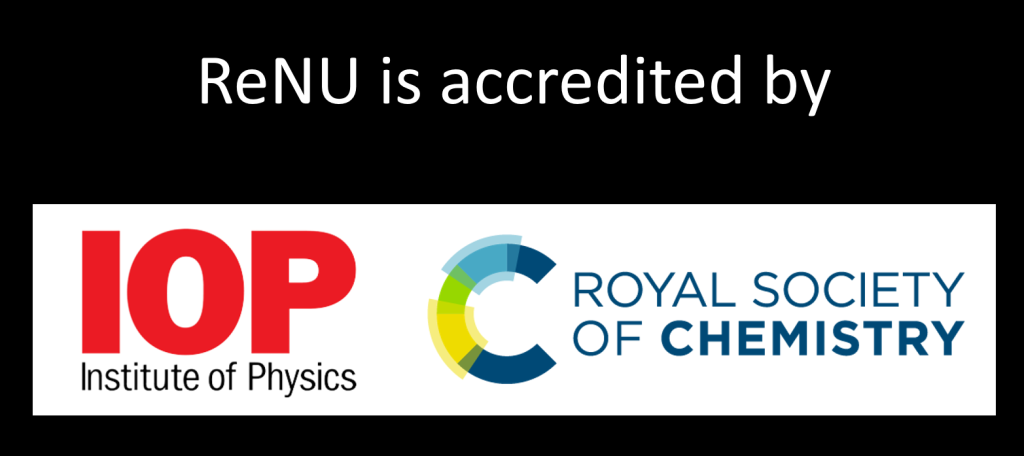Programme
The aim of ReNU is to train the next-generation of doctoral graduates with the skills required to drive UK innovation in renewable energy (RE) and sustainable distributed energy (DE) applications. ReNU is a 4 year training programme with taught modules at various strategic points during the period. When you join ReNU you will be able to start your research project immediately, getting familiar with the topics, your peers and research environment.
In additional to individual institutional training programme, ReNU will provide cohort training with the objectives of: (1) create a pipeline of doctoral graduates with outstanding problem solving abilities to enable UK commercial development and exploitation of RE and sustainable DE technologies; and (2) provide a comprehensive training experience that is inherently interdisciplinary, international and includes key business and innovation training. The training programme consists three parts: core modules, optional modules and flexible modules.
Ten core modules covering scientific fundamentals and principles relevant to RE and DE, introduction on whole energy systems, research skills and methodology, business and innovation, interaction with industry to tackle industrial challenges and enhancing employability.
Optional modules providing specialist training more relevant to your research, and delivered through specialist modules, short lab stay in the labs with specific facilities and expertise, and peer to peer learning. Each student will have the chance to take four optional modules.
Training is also provided through other flexible means of public engagement activities, participating national and international conferences, site visits to industry or other stake holders and outputs writing.
The general structure of the ReNU training programme is illustrated below.

The first year of the CDT training programme aims to provide you with fundamental knowledge of renewable and sustainable energy technologies (C2). This includes the physical principles behind batteries, fuel cells, solar cells and many other devices and materials found at the cutting-edge of energy research. Importantly, the energy sector extends well beyond a single technology and the factors which determine the success or failure of a clean energy technology include policy, economics and society. Some of these factors are considered in C4 which sets the context for innovation in the energy sector.
In addition to developing knowledge, the first year focuses on developing key skills for research relating to analysis, communication and responsible research and innovation (C3). The combination of this training with optional training modules and the flagship CDT Week will provide a solid background for success in the following years. Note also that equality, diversity and inclusivity is an important theme within ReNU and all students and academic staff will received training in this area.
The second year includes further training in whole energy systems and you will have the opportunity through an extended mini-project (C5) to consider your individual research in a broader context. The second year allow allows you to develop key skills in innovation (C6) and business (C7a) with specialists in this area.
In the third year of your training, there is increased emphasis on your individual research project as you become the expert this area. This is mixed with another extended group mini-project aimed at tacking an industrial R&D challenge (C9). You will also complete the second part of a mini-MBA business training (C7b) during this year. The fourth year of your project is focused on finishing your thesis (including writing up) and consolidating all your training such that you are ready for employment after your PhD.



